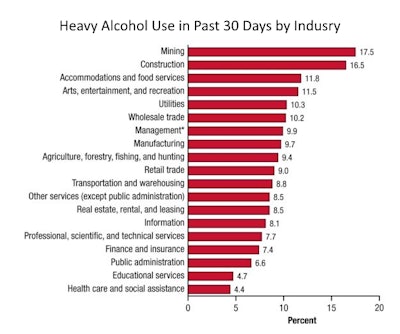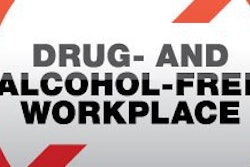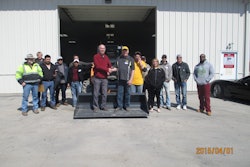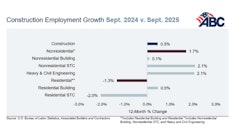
According to the Substance Abuse and Mental Health Services Administration’s 2003 to 2007 and 2008 to 2012 National Surveys on Drug Use and Health (NSDUH), the construction industry suffers from much greater substance use and abuse compared to nearly all other industries. Almost 14% of workers in construction aged 18 to 64 reported illicit drug use in the past month and almost 16% reported heavy alcohol use. (1)
The NSDUH defines illicit drugs as marijuana/hashish, cocaine (including crack), inhalants, hallucinogens, heroin, or prescription-type drugs used nonmedically. Alcohol use is considered “heavy” if user drinks five or more drinks on the same occasion – at the same time or within a couple of hours of each other – or on five or more days of the past 30 days.
Employee heavy alcohol use, use of illicit drugs, and substance use disorder negatively affects the construction industry through loss of productivity, workplace accidents and injuries, low morale and poor health.
With the legalization well under way in more than 24 states for medical and or recreational use of marijuana, we decided to reach out to our members and ask them how legalization has impacted their day-to-day operations.
Most business owners, especially in the construction industry, are still discovering the array of safety and employer/employee relationship issues associated with legalized marijuana. Nevertheless, the construction industry has carefully monitored drug and alcohol use for decades and has experience understanding how drug use impacts productivity, safety and health. That experience is why the construction industry was an early adopter of Employee Assistance Programs.
According to the AEMP survey, union and non-union companies in states where marijuana’s legal availability has changed have adopted, “stricter zero tolerance policies, screening out most drug and alcohol users with pre-employment drug and alcohol testing, 30-day random drug testing and using the supervisor’s right to test with justifiable cause.”
Equipment managers say they follow Federal law regarding the use of drug and alcohol in the workplace, “there’s just no place for it in this business.” Directly following legalization, some had company-wide meetings or distributed memos reinforcing their no-tolerance policies. They spoke of concerns surrounding safety, job performance and increased potential for lawsuits.
Equipment managers are extremely, “…concerned about the ‘bleed over’ from personal life into the work sphere especially with a seasonal workforce. In this line of business, there is no room for this behavior and being under the influence will directly impact safety. Our core group in the office and the field are very professional and take a lot of pride in the fact that we are safe and efficient. I am not that worried about the core but when we have seasonal employees that is where I see the problems develop so we will have to screen applicants even tighter than we already do.”
Some companies are reporting, “Certain challenges that we faced before, like recruiting and maintaining a skilled workforce, have been exacerbated with the legalization of recreational marijuana. Finding a talent pool that is drug-free is a much tougher feat.”
In the educational session, “What Does Your Positive Drug Screen Really Tell You?” during our AEMP 34th Management Conference & Annual Meeting in Houston, Texas, March 15 to 17, 2016, we will discuss the impact legalized marijuana has had on the industry.
For more information on this session and other educational sessions, please visit our website www.aemp.org or call (970) 384-0510.
End Notes
- Office of National Drug Control Policy, Executive Office of the President. (2011). How illicit drug use affects business and the economy. Retrieved from http://www.whitehouse.gov/sites/default/files/ondcp/Fact_Sheets/effects_of_drugs_on_economy_jw_5-24-11_0.pdf
- Larson, S. L., Eyerman, J., Foster, M. S., & Gfroerer, J. C. (2007). Worker substance use and workplace policies and programs(HHS Publication No. SMA 07–4273, Analytic Series A–29). Rockville, MD: Substance Abuse and Mental Health Services Administration, Office of Applied Studies.
About the Author: Ginger Currie is marketing and communications manager and online education content manager at the Association of Equipment Management Professionals.



















